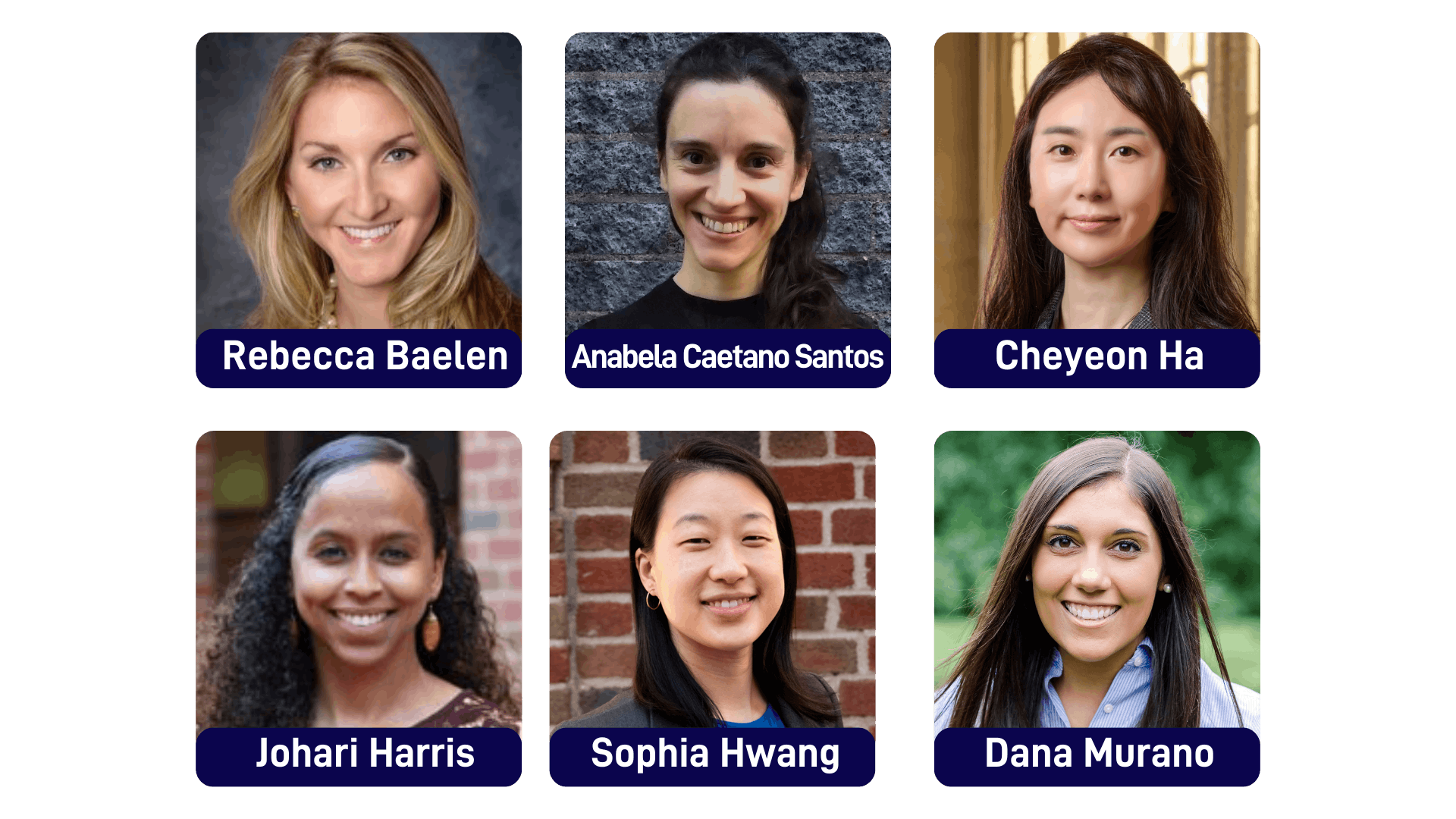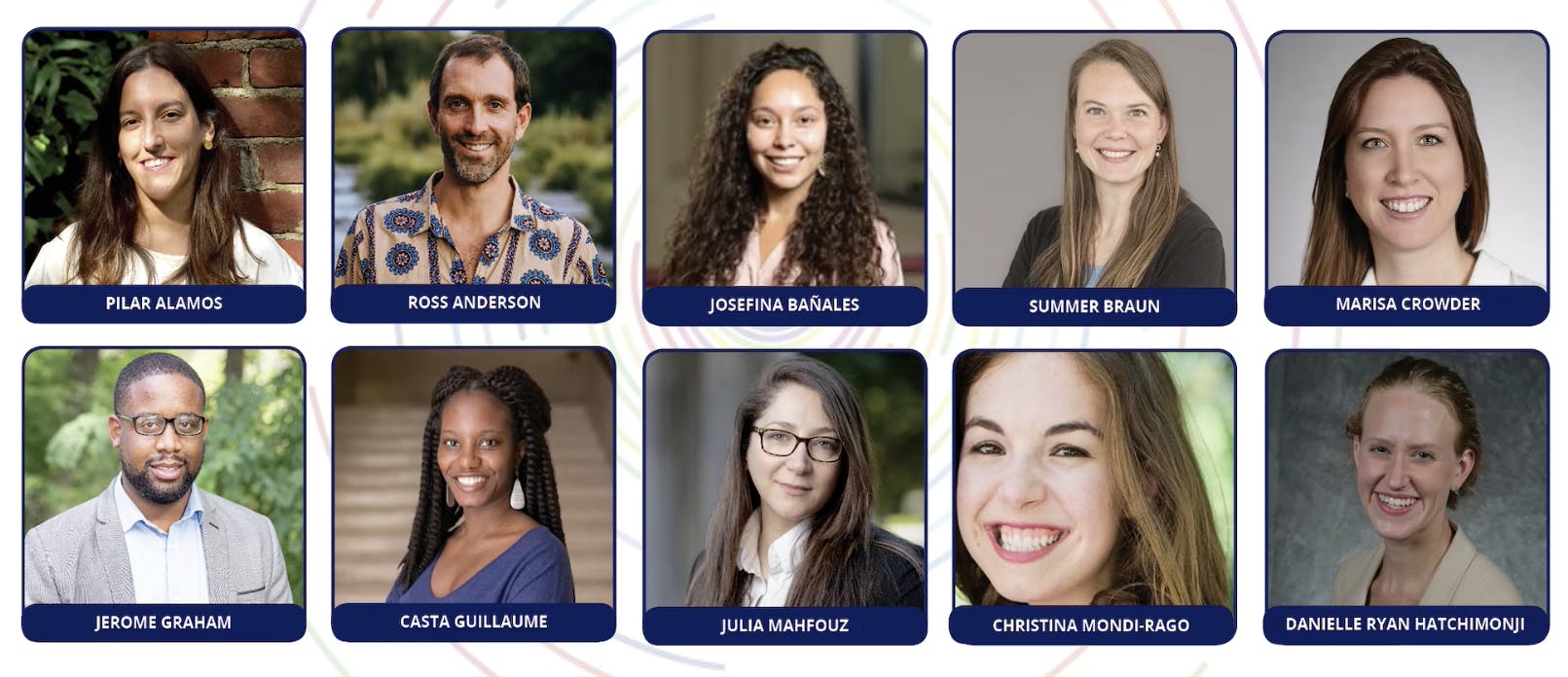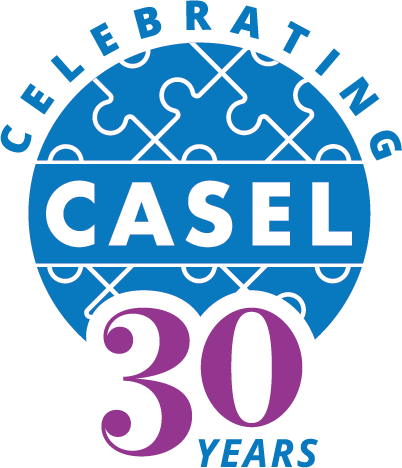CASEL leads the CASEL Weissberg Scholars program to inspire the next generation of innovators who will strengthen the vision of social and emotional learning (SEL). The program provides educational and professional development and creates a collaborative community of early career scholars who are eager to make a difference with SEL.
The 2023-2025 cohort application closed on July 31, 2023.
Inquiries? Please send questions to cwscholars@casel.org
Early career scholars are defined as individuals who are in their first five years, meaning they received their Ph.D., Ed.D., or equivalent research degree between January 2018 and October 2023, and have demonstrated experience and a commitment to collaborative research approaches
Support the program today! You can donate to CASEL Weissberg Scholars online or mail a check to CASEL Lockbox P.O. Box 95253, Chicago, IL 60694-5253. Please note CASEL Weissberg Scholars on your check. The program was made possible with generous seed funding from Pure Edge, Inc.
The CASEL Weissberg Scholars Program is the most meaningful honor of my professional life. I am excited that my colleagues and I will provide learning experiences and supports to early career scholars who will advance evidence-based practices and policies to improve the positive development and life opportunities of millions of young people.
Program Overview
Back to topCASEL is committed to supporting those that are seeking a career in the field of SEL and are working at the intersection of research and practice. The CASEL Weissberg Scholars program is a two-year program that will enable early career scholars to gain valuable exposure to the SEL field and allow them to interact with thought leaders in SEL research, practice, and policy. Download an overview here.
Early career scholars are defined as individuals who are in their first five years, meaning they received their Ph.D., Ed.D., or equivalent research degree (between January 2018 and October 2023 for the upcoming cohort), and have demonstrated experience and a commitment to collaborative research approaches.
Selected scholars will be provided mentorship from senior scholars in the field of SEL and receive guidance and support in the scholar’s pursuit of educational and professional goals to innovate and advance SEL.
Led by the Scholars Program Advisory Committee: Drs. Kimberly A. Schonert-Reichl (University of Illinois at Chicago) and Paul Goren (Northwestern University) with Marc Brackett (Yale University), Mark Greenberg (Penn State), Robert J. Jagers (CASEL), and Timothy Shriver (Special Olympics)
The 2023-2025 Cohort’s Work Ahead
Back to topThe selected CASEL Weissberg Scholars commit to:
- Two year engagement, beginning in November 2023.
- Mentorship with a leader in SEL research, practice, or policy. Mentors will be matched with each CASEL Weissberg Scholar based on shared interests. Previous mentors have included advisory committee members, CASEL leaders, and research experts such as Anne Gregory (Rutgers University), Elise Cappella (New York University) Camille Farrington (University of Chicago), and Kate Zinsser (University of Illinois at Chicago).
- Participation in bi-monthly virtual seminars with other Scholars and SEL leaders
- Development of an Individual Professional Development Plan.
- Annual end-of-year report to support CASEL’s continuous improvement.
CASEL Weissberg Scholars will also have access to:
- One in-person retreat and the SEL Exchange, the annual SEL conference hosted by CASEL. Note, all expenses will be covered.
- Opportunity to apply for funding for a Seed Grant for prosociality-related SEL research.
- Contribute to CASEL’s learning products, such as: blogs, webinars, briefs/syntheses, conference presentation or posters, Congressional briefings, etc.
-
-
- Applicants must have received a Ph.D., Ed.D., or equivalent research degree between January 2018 and October 2023.
- Applicants’ previous experience or current work is in settings that include, but are not limited to, domestic or international, university/college, school districts, research organizations, policy institutes, non-profits, or state or federal governments or ministries.
- Applicants must demonstrate experience/commitment to collaborative research approaches on SEL that include at least one of the following: educators, families, community, policymakers, children and youth.
- Applicants’ should conduct research that takes place in real-world settings.
- Applicants demonstrate potential to become innovators in SEL research, practice, and policy.
- Applicants should identify area(s) in which participation in the CASEL Weissberg Scholars program will expand their expertise, and specific details should be provided in their application.
-
-
-
- Selection is based on the applicant’s potential to become an innovator in SEL research, practice, and policy. The application should make a cohesive argument for how the applicant will expand their expertise by participating in the CASEL Weissberg Scholars programs.
- For more detailed information on the application process and material, view the application overview. Download the PDF
- Curriculum vita or resume (please do not include acronyms).
- Career Statement Narrative (four-page limit).
- Sample publications/reports or equivalent (submit up to three).
- Professional references, listing names, titles, emails, phone numbers, and organizations (three required).
- Provide a personal identity statement that describes how your personal identity influences your work in the SEL field (maximum 200 words).
Optional: Provide the names of up to three senior scholars in the field of SEL who you would like to serve as your mentor. Note: we may not be able to accommodate all request
-
Honoring Dr. Roger P. Weissberg
Back to topDr. Roger P. Weissberg (1951-2021) and his research work played a unique role in the evolution and maturation of the field of SEL. To honor his efforts as a collaborator, mentor, and founding thought leader in the field, CASEL created the CASEL Weissberg Scholars Program to bring together scholars and educators who embodied Dr. Weissberg’s commitment.
Dr. Weissberg was CASEL’s chief knowledge officer and board vice chair, and Distinguished Emeritus Professor of Psychology at the University of Illinois at Chicago. For four decades, he trained scholars and practitioners about innovative ways to design, implement, and evaluate family, school, and community interventions. His more than 260 publications focused on positive youth development programming to enhance the social, emotional, and academic learning of children and adolescents.
2023-2025 CASEL Weissberg Scholars
Back to top
-
-
Rebecca Baelen, Ph.D., is the Director of Research and Development at the Center for Reaching & Teaching the Whole Child (CRTWC) and an adjunct Professor at Teachers College, Columbia University. She earned her Ph.D. in Education Policy at the University of Pennsylvania, where she helped to develop and test approaches to support both teachers’ and students’ adaptive mindsets and social-emotional competencies – approaches that were co-constructed with teacher educators and program staff to be contextually relevant and seamlessly integrated into existing programming and teaching practice. More specifically, her research focuses on the development, testing, and implementation of strategies to support early career teachers in their transition to teaching, ideally setting them up to thrive in the profession and equipping them with the tools to support the social- emotional development and well-being of their students. In her new role at the Center for Reaching & Teaching the Whole Child, Rebecca seeks to support the integration of the Center’s Social, Emotional, and Cultural Anchor Competencies Framework – a Framework that combines a focus on social-emotional learning and culturally responsive/sustaining teaching practice – into teacher preparation and development efforts. She will also be conducting iterative research on the Framework and its implementation to improve future integration and collaborative efforts.
Anabela Caetano Santos is a postdoctoral researcher at the Distance Education and eLearning Laboratory (LE@D) at the Portuguese Open University, also collaborating with ISAMB and Aventura Social. She has a degree and master’s in Psychomotor Rehabilitation (University of Lisbon), a master’s in Science on Emotions (ISCTE-University Institute of Lisbon) and a PhD (double degree) in Education (University of Lisbon) and in School Psychology and Human Development (University of São Paulo). Her research focuses on social and emotional learning, student engagement, resilience, well-being and mental health; developing and performing impact assessments of prevention programs (universal and selective interventions) for children and youth; and developing teachers’ training. She has been collaborating in national and international grant-funded projects, such as RESCUR – European resilience curriculum, ENRETE – Enhancing resilience through teacher education, PROMEHS – Promoting mental health at schools, and WAY – Promoting student self-regulated learning through peer observation. https://www.linkedin.com/in/anabela-caetano-santos/
Cheyeon Ha is a Postdoctoral Associate of the Education Collaboratory at Yale within the Yale Child Study Center. Her research broadly focuses on children’s social and emotional development and learning support for educational equity. She is particularly interested in school-based social-emotional learning (SEL) research for children with different needs for appropriate learning opportunities considering their diverse social contexts (e.g., in low-income, with cultural diversity, and special education needs). Currently, she is involved in the ‘SEL for All’ project at the Yale Child Study Center. The project aims to develop universal SEL lesson plans and help students embrace diversity and cultivate respect for differences while simultaneously developing their social-emotional skills in schools. Also, Cheyeon has investigated various methodological approaches to explain the mechanisms of child development.
Johari Harris, Ph.D, is currently an Assistant Professor of Education Psychology in the Secondary and Middle Grades Department at Kennesaw State University. Her research is grounded in intersectionality, developmental psychology, and social psychology theories to examine best practices for supporting adolescents’ transformative social emotional development within the school context. She also examines the roles of schools and teachers in this process, specifically how teacher practice and curriculum resources can support or hinder students’ development of equity-oriented social and emotional learning competences. She has taught in K-8 schools domestically and abroad and has extensive experience in developing and implementing culturally responsive SEL curricula.
Sophia Hwang, Ph.D. is an Assistant Professor of Community Psychology at the University of Maryland, Baltimore County (UMBC). Informed by her experience as a former high school science teacher, Dr. Hwang’s research focuses on: (1) promoting students’ academic, social, and emotional development; (2) improving school and afterschool contexts; and (3) supporting educators’ professional development and wellness. Her research is community-based, conducted via research-practice partnerships, and leverages quasi-experimental, person-centered, or mixed methods. Dr. Hwang received her doctorate in Applied Psychology from NYU’s Steinhardt School of Culture, Education, and Human Development and completed her postdoctoral fellowship at UC Berkeley’s Center for Prevention Research in Social Welfare.
Dana Murano is the senior manager of the Social, Emotional, and Academic Learning Research team at ACT. She earned her Ph.D. in Educational Psychology with a specialization in Learning, Development, and Instruction from the Graduate Center, City University of New York. During her time at ACT, she has engaged in research and development work to create and validate innovative social and emotional skill assessments for learners spanning from elementary-aged to workforce. Her research also focuses on the conceptualization of SEL, stakeholder perceptions of social and emotional skills, and the development of culturally responsive SEL materials. She also has experience working with schools and districts in co-creating and delivering professional development opportunities, family SEL programming, customized data insight sessions, and in implementation studies. Overall, her experiences have highlighted the need to create SEL solutions that meet the needs of learners, schools, and caregivers to optimize the impact of SEL.
-
2021-2023 CASEL Weissberg Scholars
Back to top
-
-
Pilar Alamos is a postdoctoral researcher at the University of Virginia’s School of Education and Human Development, and an incoming Assistant Professor at the Pontifical Catholic University of Chile’s School of Education. Pilar’s research focuses on the kinds of teacher-child interactions and relationships that matter for young children’s social and emotional development in early childhood education settings. Pilar conducts applied research and is interested in testing out and strengthening interventions, practices, and policies that will create more opportunities for equitable and high-quality teacher-child interactions and relationships. https://www.linkedin.com/in/pilar-alamos/
Dr. Ross C. Anderson is co-founder and principal investigator at Creative Engagement Lab, associate scientist at Oregon Research Institute, and lecturer at the University of Oregon. He is one of the inaugural CASEL Weissberg Scholars and has led and contributed to numerous grant-funded projects, including the ArtCore project, the makeSPACE project, the Journalistic Learning Initiative and the My STEM Story project. He specializes in the design and research of dynamic, interactive online professional development in creative and interdisciplinary teaching and learning. His research focuses on agentic, artistic, and creative development for educators and their adolescent students in K-12 as the primary drivers of holistic flourishing in education across different stages of human development. He has published more than 40 journal articles and book chapters with numerous collaborators from around the world, which can be found at www.creativeengagementlab.com.
Josefina Bañales, Ph.D. is an Assistant Professor in the Community and Prevention Research Area at the University of Illinois, Chicago (UIC). Dr. Bañales infuses her personal experiences as a Mexican American woman who is a first-generation high school, college, and doctoral student from the Southwest side of Chicago with her community-engaged research with youth of color in schools and community organizations. Her research examines how youth develop beliefs, feelings, and actions that challenge racism (i.e., youth critical racial consciousness development). In collaboration with youth, schools, parents, and community organizations, she co-creates opportunities that facilitate youths’ critical racial consciousness development. Dr. Bañales loves hot black coffee, singing, and walking at a very leisurely pace.
Summer S. Braun, Ph.D., is an Assistant Professor in the Department of Psychology and affiliated with the Center for Youth Development and Intervention at the University of Alabama. She leads the Well-Being Interventions for Teachers and Youth (WITY) Lab at the University of Alabama. She earned her Ph.D. in Human Development and Family Studies at The Pennsylvania State University, where her training motivated her to consider development in context. Her research centers on schools as a particularly important context for children’s development. Her program of research focuses on understanding the associations between teachers’ occupational health and well-being and their students’ social, emotional, and behavioral development using a variety of methodological approaches. Her work bridges research and practice by studying interventions designed to support the health and well-being of teachers and students, such as mindfulness-based wellness programs.
Marisa Crowder is a senior researcher at McREL International, working in partnership with educators in K-12 and higher education systems in Hawai‘i and U.S.- affiliated countries and territories in the Pacific region. Marisa has led projects in Hawai‘i and the Commonwealth of the Northern Mariana Islands that aim to deepen educators’ understanding of ways they can implement SEL in a manner that fits their local context. Her career began at the Washoe County School District (WCSD) where Marisa supported the development of the WCSD Social-Emotional Competency Assessment (WCSD-SECA) and investigated how its dimensional structure varies across student subpopulations. Marisa’s experiences have highlighted a need to develop resources that empower educators to create or adapt effective SEL programs, practices, and assessments that are culturally relevant for their students. To address this, Marisa’s research interests center on identifying promising practices that support culturally relevant SEL across multiple cultural contexts, and for all learners. https://www.linkedin.com/in/marisa-crowder/
Jerome Graham is an Assistant Professor of K-12 Educational Administration at Michigan State University. His research interests focus broadly on the interaction of race and class in educational policy and practice. Specifically, Jerome uses mixed-methods research designs to evaluate the effects of education reforms that target minoritized students and the mechanisms that drive such reforms. His current research background emphasizes how schools can provide constructive school climates for students, which facilitate the process by which they develop cognitive and socio-emotional skills to improve their short- and long-term outcomes. His theoretical orientation is psychosociological, in that Jerome’s research agenda focuses not only on persons’ individual development (academic, emotional, and otherwise) but also on the social structures that influence their development.
Casta Guillaume, Ph.D., serves as Director of Research, Learning, and Evaluation at the National Equity Project. Her action-oriented approach to research privileges intergenerational connections. She applies an intersectional feminist lens and community based research methodologies to develop strategy and research-practice partnership models that support both young peoples’ and adults’ social emotional and socio-political development.
Julia Mahfouz, Ph.D., is an assistant professor in the Leadership for Educational Organizations program, School of Education and Human Development at the University of Colorado-Denver. Her research explores the social, emotional, and cultural dynamics of educational settings placing specific emphasis on Adult SEL, specifically school administrators, and the integration of systemic SEL into principal preparation programs. Thus, she has implemented mindfulness and SEL-based professional development programs to understand how such programs can improve principal wellbeing and leadership. She has also investigated how preparation programs and certification standards can be strengthened to enhance effective leadership by supporting principals to deepen their social and emotional competencies.
Christina Mondi-Rago holds a Ph.D. in Developmental and Clinical Psychology from the University of Minnesota. She is an Attending Psychologist and Lead Researcher at the Brazelton Touchpoints Center (Division of Developmental Medicine, Boston Children’s Hospital) Her research focuses on the assessment and promotion of socio-emotional learning and mental health starting in early childhood, with an emphasis on populations affected by poverty and trauma. She is particularly interested in the role that early care and education programs can play in promoting lifelong wellbeing. She also provides mental health consultation and outpatient psychological services to children and families in the community. https://www.brazeltontouchpoints.org/about/who-we-are/entry/mondi-rago/
Danielle Hatchimonji is an Assistant Research Scientist at Nemours Children’s Health, a health system spanning the Delaware Valley and Florida. She received her PhD in Psychology from Rutgers University and remains affiliated with the Social-Emotional and Character Development Lab (www.secdlab.org). She researches how schools and healthcare systems can advance equity and promote social-emotional and character development for all children toward the ultimate goal of creating a more just and equitable world.
-
